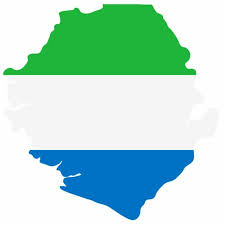Sierra Leone is a land of stunning natural beauty, endowed with lush forests, rolling hills, pristine beaches, and abundant resources. This environmental wealth is more than an aesthetic gift; it is the foundation of the nation’s economy, culture, and survival. However, like any treasure, it is fragile and requires our collective care to sustain. If Sierra Leoneans fail to protect their environment, the consequences will affect generations, threatening health, livelihoods, and the very essence of our national identity.
From the verdant peaks of the Loma Mountains to the serene beaches of the Western Peninsula, Sierra Leone is a treasure trove of natural wonders. Rainforests like the Gola Forest harbour incredible biodiversity, including rare species like the pygmy hippo and chimpanzee. Coastal mangroves act as natural barriers against erosion and serve as critical breeding grounds for marine life. Rivers such as the Rokel and Sewa provide water for agriculture, drinking, and hydroelectric power, while fertile soils sustain farming communities.
These natural resources are not just picturesque; they are essential to Sierra Leone’s economy. Agriculture, fishing, and tourism—all dependent on a healthy environment—offer livelihoods to millions of Sierra Leoneans. Forests act as carbon sinks, mitigating climate change, while oceans and rivers supply the food and water necessary for survival.
Despite its value, Sierra Leone’s environment faces severe threats from human activity. Deforestation, illegal mining, overfishing, and improper waste disposal are depleting the very resources we rely on. If these actions continue unchecked, the damage could be catastrophic. The destruction of forests and wetlands contributes to global climate change, leading to unpredictable weather patterns, rising sea levels, and droughts that undermine agriculture and food security. The loss of biodiversity disrupts ecosystems, with potentially devastating consequences, such as the impact on crop production if pollinators like bees disappear. Pollution of air, water, and soil poses significant health risks, from respiratory diseases to waterborne illnesses. Economic decline is another consequence, as depleted resources reduce job opportunities and income. For instance, overfishing can collapse fish populations, devastating coastal communities.
Protecting Sierra Leone’s environment is not a task for the government alone; it requires the commitment of every citizen. The environment sustains us all, and preserving it is a collective responsibility. Raising awareness through education is a vital step. Schools, community groups, and media outlets can emphasize the importance of environmental conservation and teach sustainable practices.
Promoting afforestation by planting trees can restore degraded land, combat erosion, absorb carbon dioxide, and provide habitats for wildlife. Every Sierra Leonean should be encouraged to plant at least one tree in their lifetime. Stricter enforcement of environmental laws is also crucial. Illegal mining and logging must be curtailed to protect forests and waterways. Sustainable farming practices, such as crop rotation, agroforestry, and organic farming, help maintain soil fertility and reduce the need for harmful chemicals.
Proper waste management is another critical area. Reducing, reusing, and recycling waste can minimize pollution. Communities should organize clean-up campaigns and advocate for improved waste management systems. Investing in renewable energy sources like solar, wind, and hydroelectric power can reduce reliance on fossil fuels while preserving the environment and providing clean energy.
Empowering local communities is essential. Those who live near forests, rivers, and other natural resources should be involved in conservation efforts. Providing alternative livelihoods can reduce their dependence on exploiting these resources.
Sierra Leone stands at a pivotal moment. The nation can either exploit its environment recklessly, leaving behind a barren, polluted land, or embrace sustainable practices that ensure its natural wealth endures for future generations. The choice is clear, and the time to act is now. Sierra Leone’s environment is a gift, but it is not guaranteed. It requires care, respect, and effort to sustain.
As Nobel laureate Wangari Maathai once said, “We need to promote development that does not destroy our environment.” Sierra Leoneans must take these words to heart, understanding that the path to a brighter future begins with preserving the natural world we are blessed to call home. Let us safeguard our environment not only for ourselves but for our children and their children. For the health of the land, water, and air is ultimately the health of the people. Let Sierra Leone be an example of how a nation can grow without sacrificing its soul.













